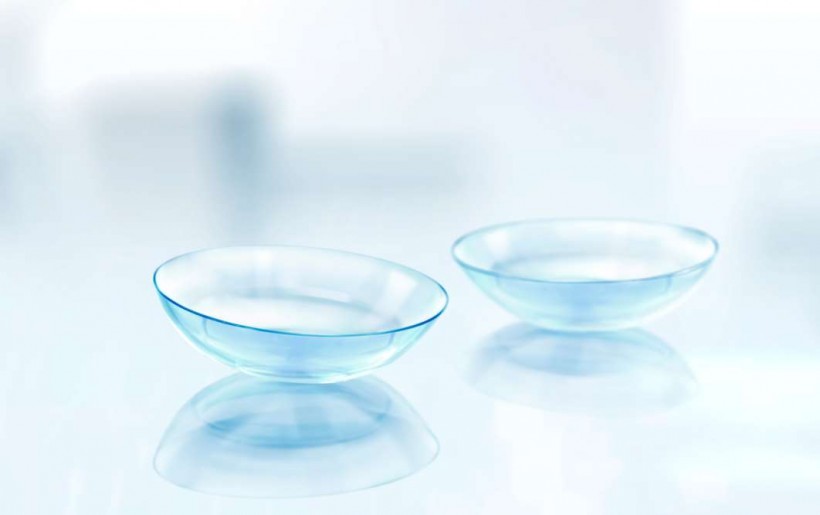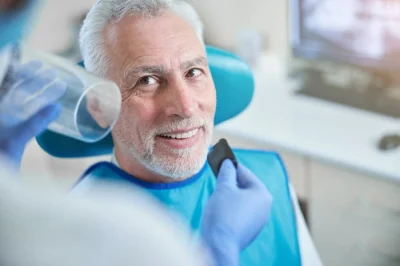6 Side Effects from Wearing Contacts Too Long
Warning: Undefined variable $post in /home/dietofli/public_html/wp-content/plugins/code-snippets/php/snippet-ops.php(584) : eval()'d code on line 3
Warning: Attempt to read property "ID" on null in /home/dietofli/public_html/wp-content/plugins/code-snippets/php/snippet-ops.php(584) : eval()'d code on line 3
The estimated reading time is 5 minutes
Warning: Undefined variable $post in /home/dietofli/public_html/wp-content/plugins/oxygen/component-framework/components/classes/code-block.class.php(115) : eval()'d code on line 3
Warning: Attempt to read property "ID" on null in /home/dietofli/public_html/wp-content/plugins/oxygen/component-framework/components/classes/code-block.class.php(115) : eval()'d code on line 3

Contact lenses are a very convenient solution for correcting your eyesight. They go unnoticed, can be worn during sports activities, can’t fall off, break, fog up; they cannot get wet, they correct your full field of vision, etc. However, they also have some flaws- you have heard a thousand times how you are not supposed to wear them non-stop. If you think that this warning is just an old wife’s tale, after reading through this article, you will think again.
Here are the 6 side effects of wearing contacts too long.
No1: Corneal Neovascularization
Yes, this sounds complicated, but this condition is simply oxygen depletion in your eye. Your cornea is a unique part of your whole body because it gets oxygen directly from the air, and not through the bloodstream. The “contact” part of the name contact lens means that it sits on your cornea, thus preventing it from getting enough oxygen. When this happens for too long periods, the body has to do something- since the cornea does not get enough oxygen from the air, getting it from blood vessels becomes the only option, and your body starts creating blood vessels on your cornea. The result of this is that cornea can become opaque, compromising your sight. This is a slow process, that can go unnoticed for years, and once it does get noticed, it is often too late- the damage is done. Wear contact lenses for a maximum of eight hours continuously to prevent this from happening. Also, if you can, get lenses made out of silicone hydrogels, a material that allows the most oxygen to reach your cornea.
No2: Infections
Contact lenses are like a sponge- porous but also soak up a lot, and are heaven for microorganisms. When your sponge is new, it is not a problem, but if you use it for too long, it will be less and less efficient and more and more smelly and gross. The same goes for your contacts- if you wear them for too long, they will not start smelling, but they will build up a lot of bacteria, viruses, fungi and even amebae. These cause all types of infections that will create vision problems for you such as itchiness, red eyes, and pain and can also damage your eyesight if left untreated. Corneal infections are called keratitis, and one type is especially dangerous- Acanthamoeba keratitis, caused by amebae. This is a severe eye infection, that is often associated with swimming pools, and the main reason why wearing contacts when swimming is strongly disadvised.
No3: Pain
Your contact lenses should never cause any discomfort if they do, something is very wrong. People often forget to take off their contacts because they forget that they are wearing them- since they cause no discomfort and are unnoticeable during the day, people go to sleep with contacts on. What a mistake. Wearing your contacts at night can cause mechanical irritation and scratches to your eyes causing pain. Make sure you remove them before bed.
No4: Red eyes
Red eyes are a clear symptom that something is wrong with your eyes and are tied to a multitude of conditions. Wearing contacts for too long is one of them, and if your eyes turn red because of it, you know that you are in trouble. If you neglect this condition (parts of) your eyes can stay permanently red- not a pleasant thing to see, that is for sure.
No5: Eye ulcers
Ulcers are open sores that can appear on your cornea if you wear your contact lenses for too long. Microorganisms build up in the space between your cornea and the contact lens, and if you do not adequately clean, or regularly remove your contacts, they start wreaking havoc. Depending on the seriousness of the issue, it might take a while for it to go away, and in some cases, the scarring is so severe, that it can even cause vision loss. Don’t gamble, take your contacts off, and make sure you clean them thoroughly.
No6: Impacted vision
Contact lenses are there to correct your vision, not to make it worse. Wearing your contacts for too long will cause protein and bacterial buildup on the surface, which will cause blurred vision and excessive tearing. All of this can be avoided if you just follow one rule- do not wear contact lenses more than you are supposed to.
The two types of “too long”
It is recommended that you wear contacts for eight hours or less per day. The truth is that most of us wear them more than that. However, that is not our only sin- laziness is also an issue. Contact lenses usually have recommended schedule, but that is easy to forget- how many times have you worn two-week contacts for a month? Although you have probably gotten away with it without any damage done before, this is something you should avoid doing. After the recommended period expires, contact lenses become less efficient and more prone to microorganism buildup. They will also become less comfortable, causing tearing, blurred vision, pain, and even some of the conditions mentioned above. So make sure that you wear your contacts for less than eight hours per day, but also not wear them past the “expiration date.”
Conclusion
As you can see, it is not just a myth, wearing your contact lenses for too long is a bad idea, that can leave lasting consequences on your eye health. That is why it is vital not to make that mistake- take them off regularly, and wear your glasses when you are at home. Also remember to keep a high level of hygiene when managing them- keep your hands, contacts, and the case clean. That will further reduce the infection risks, keeping your eyes healthy and vision clear. Additionally make sure you visit your eye doctor regularly, for preventive purposes, and not only when something is wrong; it will save you a lot of potential trouble.














